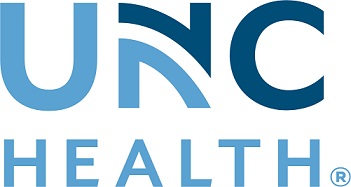Newswise — CHAPEL HILL, N.C. – Sudden unexpected death (SUD) results from a malfunction of the heart and causes a rapid loss of blood flow through the body, leading to death. It is a very rapid process and may have few or no known warning signs. The overall survival rate for out-of-hospital arrest is only 5-10%. SUD is responsible for upwards of 450,000 people in the United States each year, with North Carolina experiencing an average of 32 SUD-related deaths each day.
New research has identified five medical conditions that may contribute to SUD in North Carolina at a rate that is significant.
Hypertension, diabetes mellitus, dyslipidemia, coronary heart disease, and cardiomyopathy were found to be the highest contributors in North Carolina SUD cases, according to the first published work from the SUDDEN (SUDden DEath in North Carolina) study at the University of North Carolina at Chapel Hill School of Medicine.
“I think we are at the start of a long, important process to understand SUD in North Carolina,” said lead study author Eugene H. Chung, MD, associate professor of cardiology at the UNC School of Medicine. This work was performed in collaboration with the Wake County Emergency Management Services.
The study was published online on August 27 in the British cardiology journal, Open Heart. It was funded by individual donations from Cecil Sewell, Scott Custer, and Joe and Ann Lamb. Additional support was provided by the Heart & Vascular division of the University of North Carolina at Chapel Hill.
While previous studies of SUD have also discovered a higher occurrence of the same five comorbidities, these studies were performed on largely middle-class, Caucasian populations in the Northwestern United States.
From March 1-June 29, 2013, the SUDDEN study identified 105 presumed occurrences of SUD in Wake County, North Carolina. Wake County is the second largest county in North Carolina and has a diverse population that is racially and socioeconomically similar to that of the population of the United States.
Death certificates were reviewed for all study subjects and medical data was collected for 90.5% of the subjects.
The researchers discovered that 56.8% of the subjects had a clinical history of hypertension. This is significant because the national prevalence of hypertension across the United States is 28.6%.
Other medical conditions found at a high rate in the SUD subjects were dyslipidemia (30.5%), diabetes mellitus (27.4%), cardiomyopathy (24.2%), and coronary heart disease (22.1%).
“If we find that these diseases are continually found in SUD patients across North Carolina, then programs focusing on prevention will become even more important,” said Dr. Chung.
Dr. Chung and his colleagues plan to extend the study to each of the 100 North Carolina counties. They hope to create a database that identifies high-risk populations and discovers meaningful predictors of SUD to aid in the treatment and longevity of high-risk patients.
Study co-authors from the UNC division of cardiology include Parin Nanavati, John Paul Mounsey, Irion Pursell, Jr., Ross Simpson, Mary Elizabeth Lewis, and Neil Mehta. Additional co-authors from Wake County Department of Emergency Medical Services and UNC Department of Emergency Medicine include Jefferson Williams, Michael Bachman, and J. Brent Myers.
Visit the SUDDEN study at UNC to learn more.
